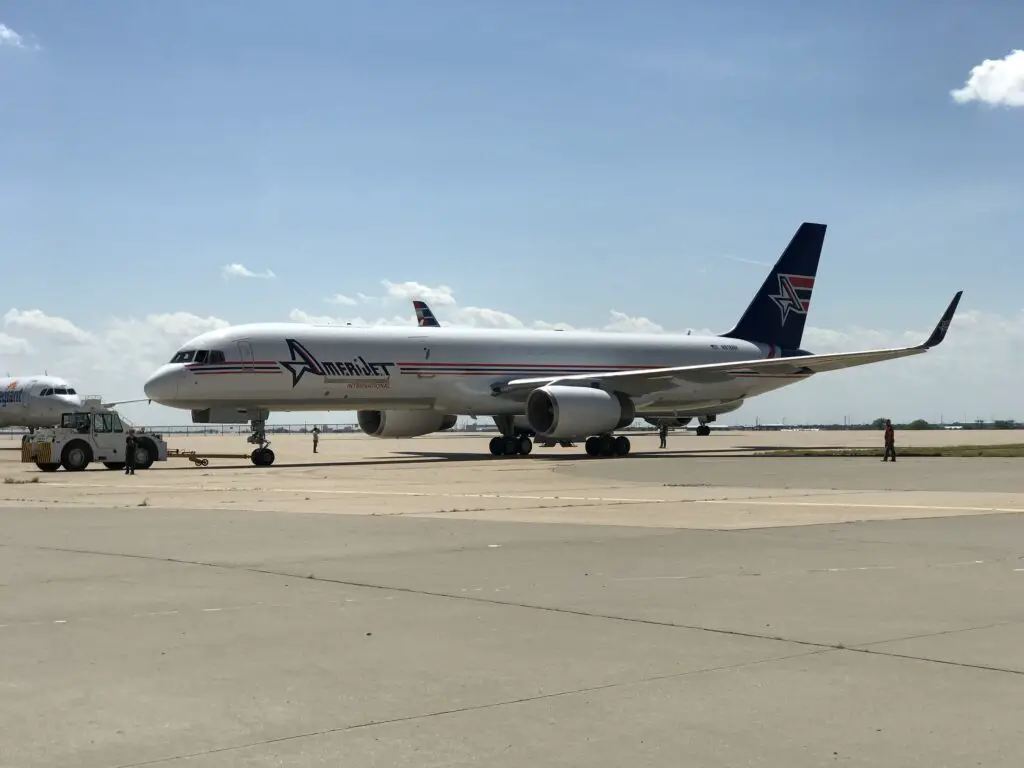Amerijet International is set to retire its Boeing 757F fleet: the Miami-based cargo airline is withdrawing of Boeing 757F aircraft in an effort to mitigate negative cash flow resulting from the global downturn in the market.
Amid the COVID-19 pandemic, Amerijet experienced significant expansion driven by the e-commerce boost in the air cargo sector. According to an internal memo published by Freightwaves, the airline considered deprioritizing one of its planes and postponing scheduled maintenance for two others.
Contracts Decline with USPS and DHL
The current crisis at Amerijet is primarily due to the termination of two major contracts with the United States Postal Service (USPS) and DHL Express.
USPS decided not to renew two contracts with Amerijet, dealing the first blow to the company. The courier shifted 95% of mail and parcel volume to its ground network, reducing reliance on air transport and cutting costs.
On the other hand, DHL canceled parcel contracts in its express network, delivering a second blow to the financial state of the Miami-based airline. Amerijet operated seven Boeing 767F for the company, but currently flies only two.
Services for Maersk Air Cargo
Amerijet maintains a contract with Maersk Air Cargo, operating two routes with several weekly flights between China and the United States with a stopover in Incheon (ICN), South Korea. However, this contract is in jeopardy as Korean authorities do not authorize Amerijet to operate regularly in said airport, forcing the company to seek monthly authorization for commercial access to Korea.
Unable to operate regularly, Amerijet faces increased legal and airport fees, further worsening negative cash flow. For this service, the airline relies on three Boeing 767s supplied by Maersk Air Cargo.
Recovery of the Passenger Market
In 2023, the passenger air travel market has recovered to pre-pandemic levels, negatively impacting Amerijet. Airlines now have more cargo space in the lower holds of their planes, increasing air cargo capacity at a lower cost, as most operating expenses are covered by the passenger business.
This recovery has reduced Amerijet’s load factor to 50%, and even lower on some routes. The airline was compelled to close a small cargo expedition division, resulting in the disconnection of 15 back-office employees.
Overall, air cargo faces an 8% year-on-year decline in cargo volume in 2022 and a 6% year-on-year decline in 2023. Many cargo airlines have paused their plans to acquire new aircraft and have scaled back operations to balance their financial sheets.














